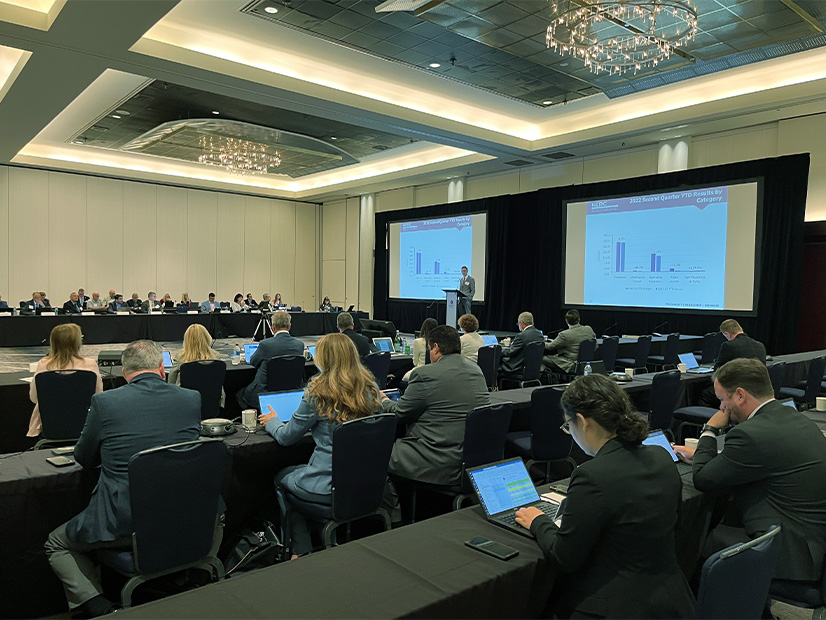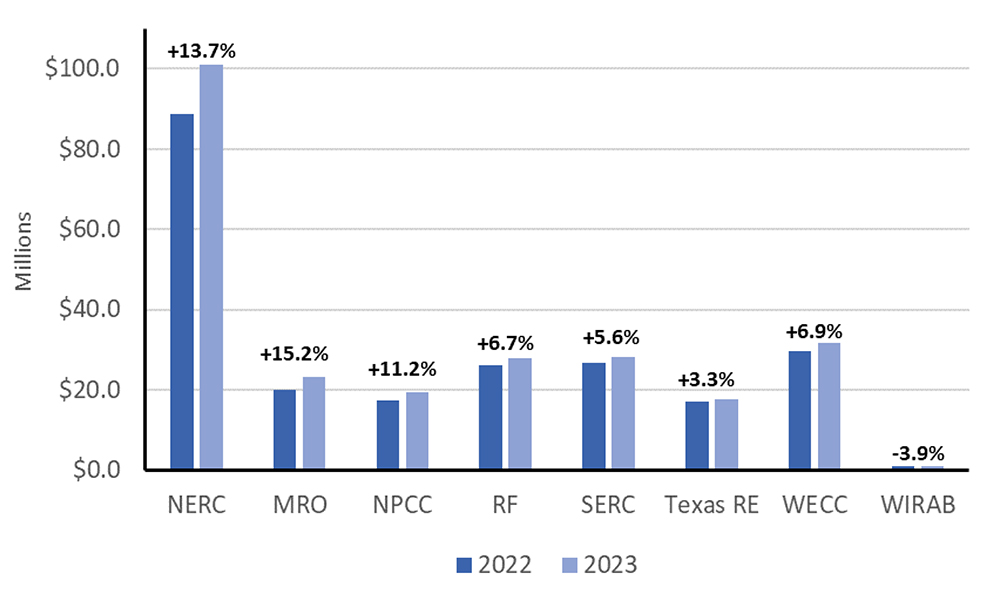
VANCOUVER, Canada — At its quarterly meeting on Wednesday, NERC’s Finance and Audit Committee (FAC) approved the final business plans and budgets for NERC and the regional entities. With the FAC’s approval, the budgets will now go to NERC’s Board of Trustees for approval at its meeting on Thursday.
The final budgets are largely the same as the drafts that NERC unveiled in May after what board members on Wednesday called “the most comprehensive budget process” to date at the ERO. (See NERC Plans Big Budget Hike for 2023.) Only NERC and WECC’s final figures differed from those provided in the original versions. NERC’s overall projected budget now stands at $101 million, up from $100.8 million in the draft because of higher operating expenses. WECC’s final budget is up from $31.7 million to $31.8 million because of lower projected savings in some categories.
NERC posted the drafts for comment on its website. The organization received five comment submissions from Electricity Canada, Ontario’s Independent Electricity System Operator, the ISO/RTO Council’s Standards Review Committee, the National Rural Electric Cooperative Association, and other industry organizations. The ERO’s responses to the comments were incorporated into the final versions.
Comments from stakeholders followed three major themes, Andy Sharp, NERC’s vice president and CFO, said at the FAC meeting.
First, stakeholders encouraged the ERO to continue improving the development process for the business plans and budgets through “metrics that support budget assumptions and demonstrate effectiveness.” Sharp said the FAC is committed to “engaging and collaborating … for ideas” on effective metrics.

Stakeholders also sought more collaboration in technology and cybersecurity investments, calling for increased transparency around investments like the ERO’s Align software tool and Secure Evidence Locker, and alignment between these investments and reliability metrics.
The third major theme concerned reducing the need for budget and assessment increases through improved efficiencies, reflecting concern about the economic pressures on the industry. (See ERO Warns Inflation, Cyber Investments to Keep Boosting Budgets.) Stakeholders’ suggestions in this area included using contractors instead of full-time equivalents, reassessing annual salary increases, and increasing use of virtual meetings, which have proven to reduce travel and related costs.
Sharp acknowledged the suggestions, promising that the ERO will seek to reduce burdens on the industry.
He also reminded listeners that some of the advanced projects that NERC is working on require a high level of expertise.
“We do continue to want to leverage subject matter experts in the industry, but we also want to remain sensitive to the level of demand we’re placing on you, especially in these scarce or high-demand resource areas, [and] reducing duplication with other organizations,” Sharp said.
Brian Evans-Mongeon, president of Utility Services, said that while he was happy with the ERO Enterprise’s willingness to incorporate industry feedback into its budget process, staff should also keep in mind the burdens placed on smaller organizations that lack the resources of larger companies.
“We very much appreciate the … openness and the collaboration, but we just want to make sure that that collaboration comes forward so that we can all meet these priorities in the most cost-effective way, because it’s going to require effort across the board,” Evans-Mongeon said. “And that means support from the smaller organizations as well, and they’re going to have to figure out how to match this.”



